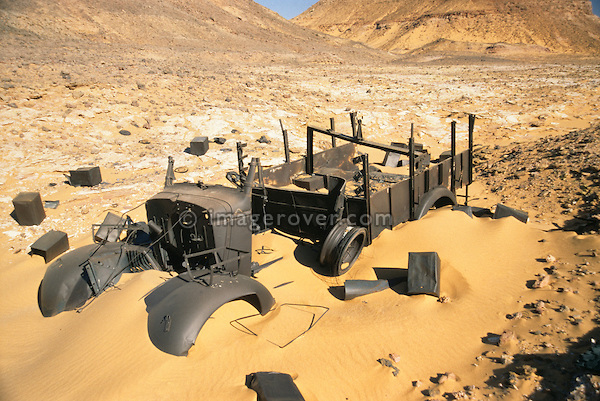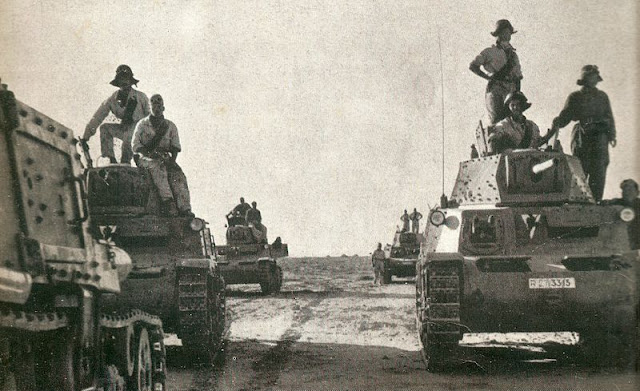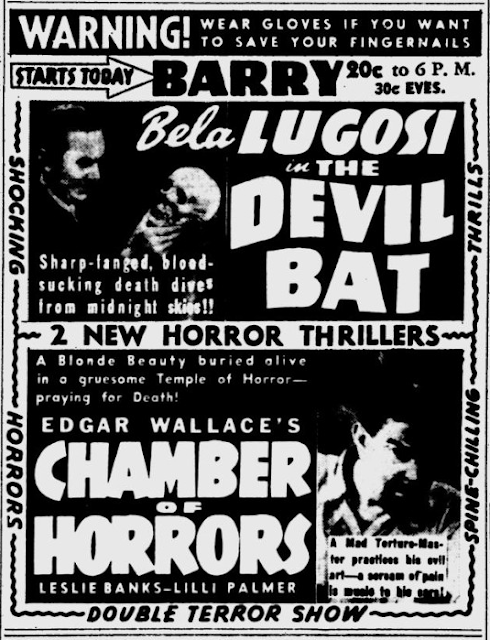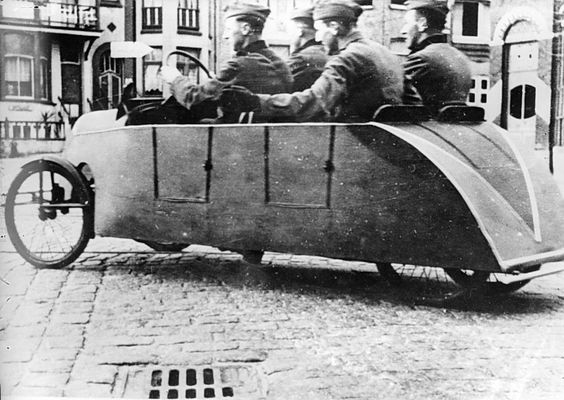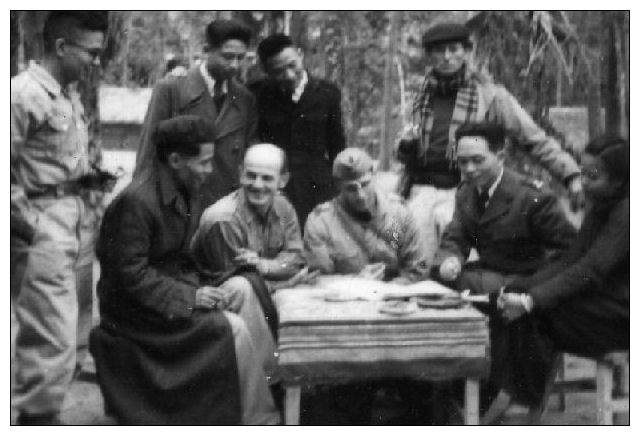Friday 31 January 1941
 |
| "Air raid damage to the Naval Gallery at the Imperial War Museum, London, 31 January 1941." © IWM (MH 127). |
Italian/Greek Campaign: British Prime Minister Winston Churchill on 31 January 1941 continues to place greater priority on the Greece/Turkey region than on the current campaign in North Africa. He sends a memo today to the Chiefs of Staff Committee in which he reiterates that "only Forces which do not conflict with European [i.e., Greek and Turkish] needs can be employed" in any advance to Benghazi in Libya. He emphasizes that "this should be impressed upon General Wavell."
The Greeks and Italians continue to fight for supremacy of the Trebeshinë massif. The heights are held by two battalions of Italian Blackshirts, and they are fighting as hard as any Italian troops anywhere. The Greeks want the range in order to secure their flank for an advance on Salona. At this point, in light of later events, all the Italians have to do is prolong the battles as long as possible and wait for the Germans.
The pass between Mount Cochen and Mount Laquatat is the last good defensive position ahead of the Agordat plain, where the advance should be easier because it is a good tank ground. While the Italians fight hard, the British Matilda tanks are almost invulnerable to the light Italian arms and overpower the Italian armor. By 14:00, the battle is over, and the Matildas have destroyed eleven M11/39 tanks and Fiat L3 Tankettes. Italian cavalry counterattacks beyond the pass, however, fail, and the Italian troops retreat in a panic to Keren, bypassing Agordat (which is still fortified by the Italians). The pathway to Agordat now is wide open with nothing to stop the Allies.
At Barentu, the other prong of the British invasion, the battle between the 5th Indian Division and the Italian 2nd Colonial Division continues to a conclusion. The Italians have been fighting hard there, too, continuing with counterattacks. However, they have their eye on Agordat, where the roads to the coast join. If it falls due to the advance of the 4th Indian Division near Mount Cochen, their own rear will be threatened and further defense impossible. Once in possession of Agordat, the 4th Indian Division could attack them from behind and essentially surround them. During the night, the Italians, no doubt hearing of events at Mount Cochen, decide to retreat toward Tole and Arresa. The Indians prod them along by sending a motorized machine-gun unit behind them, but the Italians have no desire to fight. In fact, they are abandoning the roads and heading for safety on foot over rough ground where they can't be pursued.
The collapse of this prime defensive position opens up the road to Agordat for the 5th Indian Division as well, which is garrisoned by only a small force (which the other Italian troops are leaving to their fate). The Italians are hampered by shortages of everything except men (mostly natives), including planes, supplies, vehicles, and fuel.
Elsewhere, the Italians retreat from their base at Gallabat under light pressure from the Indian 9th Infantry Brigade. The South African 2nd Infantry Brigade and 5th Infantry Brigade advance from Kenya into Ethiopia (Abyssinia).
European Air Operations: The Luftwaffe continues its random raids by fighter-bombers (Jabos). Today, the Jabos score hits on three London hospitals, apparently as a fluke. They also damage the Naval Gallery at the Imperial War Museum. RAF Bomber Command stays on the ground, and there are no attacks by either side after dark.
Battle of the Atlantic: The weather remains rough in the North Atlantic. It is so rough that German battlecruisers Scharnhorst and Gneisenau, on Operation Berlin, remain unable to refuel from the tanker with which they have rendezvoused near Bear Island, delaying their breakout into the Atlantic through the Denmark Strait.
Italian submarine Dandolo torpedoes and sinks 1367 ton British freighter Pizzaro about 1200 km off Cape Finisterre, Spain. There are six survivors and 23 deaths.
The Luftwaffe bombs and sinks 5159-ton British freighter Rowanbank, a member of Convoy SL-62, in the Northwest Approaches several hundred miles from Ireland.
The Luftwaffe also bombs and sinks 5035-ton Belgian freighter Olympier about 220 km northwest of Tory Island. There are 8 deaths and 19 survivors.
British mines claim two Allied ships north of North Rona Island, Scotland. They are 3091 ton Royal Navy collier HMS Botusk aka Molton and 5436-ton Dutch freighter Emmaplein, both members of Convoy HX 103. There are four deaths on Botusk, but all 31 men on the Emmaplein survive. At first, a U-boat is suspected, which leads to a major search in the area, but eventually, someone figures out the real cause.
A mine also strikes 200-ton Dutch balloon barrage vessel Saturnus off Maughold Head on the Isle of Man. The ship is abandoned, but salvagers later refloat it and bring it to the port of Douglas.
Danish freighter Maja hits a mine and sinks in the Elbe.
Convoy OB 280 departs from Liverpool, convoy FN 396 sails from Southend, Convoy FN 397 is held in the port, Convoys FS 400 and FS 401 depart from Methil, Convoy SC 21 departs from Halifax.
US destroyer USS Edison (Lt. Commander Albert C. Murdaugh) and submarine USS Finback commissioned, USS Grayback launched.
U-751 (Kapitänleutnant Gerhard Bigalk) is commissioned.
Allied Shipping Losses for January 1941:
74 Allied ships of 309,942 tons in Atlantic
2 Allied ships of 13,478 tons in other areas
There are:
The Axis loses 8 ships of 23,129 tons, all in the Mediterranean. The Kriegsmarine loses no U-boats. There are 22 U-boats operational at the end of the month, of which typically 1/3 are on patrol (1/3 are in port and 1/3 transiting to/from patrol).
General O'Connor wishes to send his armor and wheeled vehicles from Derna south of the Jebel Akhdar (Green Mountain) to head the Italians off further west (the Australian infantry is advancing north of the mountain). However, Middle East Commander General Archibald Wavell remains in Nairobi overseeing the advance in Abyssinia and has not approved that operation. Truth be told, the British armor can probably use a few days to bring up more fuel and other supplies and undergo routine maintenance. On the other hand, the chances of cutting off a fleeing enemy diminish with each day of delay.
Free French Forces and the British Long Range Desert Group (LRDG), which recently combined for an attack on the Italian forces based at Murzuk, plan to launch another attack together. This one is against Kufra, in the same general area in southwest Libya. Colonel Philippe Leclerc commands about 400 men in 60 trucks and 8 armored vehicles. Kufra is a well-defended Italian fort, and the Italians have their guard up due to the successful LRDG attack on Murzuk.
Today, while part of the LRDG is on patrol, an Italian plane spots that part of the LRDG force at Gebel Sherif, which leads to a battle with the Italian Sahara patrol. Major Pat Clayton commands G Guard (Brigade of Guard) and T Patrol (New Zealand patrols) of LRDG, a total of 76 men in 26 vehicles. The Italians overpower the T Patrol of LRDG and destroy four (of 11) British trucks. They also capture Major Clayton and several others, along with Clayton's plans for the Kufra raid. One British and two Libyan (Italian) soldiers are killed. This action forces most of the LRDG to withdraw to Egypt to refit and regroup - in fact, some walk back to Egypt. However, Leclerc continues with his plan to attack Kufra sometime in February.
Royal Navy submarine HMS Huntley is attacked and sunk by Luftwaffe aircraft (apparently Fliegerkorps X based on Sicily) about 30 nautical miles northwest of Mersa Matruh, Egypt. There are 18 deaths, including Captain Cotsell who perishes from his injuries later, while 26 crew survive but are wounded.
Force H departs from Gibraltar toward Italy. It is to launch attacks on a dam at Tirso (Operation Picket) and on Genoa (operation Result). The fleet is divided into four groups: Group 1 led by battleship HMS Malaya, aircraft carrier HMS Ark Royal, battlecruiser HMS Renown and light cruiser HMS Sheffield, the other three groups composed of destroyers and support ships.
Royal Navy submarine HMS Rorqual spots 407-ton Italian tug Ursus in the Adriatic near the island of Curzola (Korčula) and attacks it with its deck gun. The tug sinks and the barge the tug is towing also suffer damage but is later towed into Dubrovnik.
Italian S boats Lupo and Libra operating off Crete damage 8120-ton British tanker Desmoulea. Destroyer HMS Dainty tows it to Suda Bay, and eventually, it is taken to Mumbai, where it serves as a store ship rather than be completely repaired.
The Luftwaffe (apparently Heinkel He 111s of II,/KG 26) bombs and damages 1290 ton Egyptian freighter Sollum near Sidi Barrani. (Some accounts say the captain saves the ship by beaching it.) The Sollum is transporting 250 Italian POWs.
The RAF bombs Tripoli during the night and causes harbor damage.
Royal Navy destroyer HMS Greyhound collides with battleship HMS Warspite at Alexandria. Both ships are lightly damaged and require minor repairs.
Battle of the Indian Ocean: German raider Atlantis seizes 5150-ton British freighter Speybank off the eastern coast of Africa. It later puts a prize crew on board and sends the undamaged ship to Bordeaux for conversion into an auxiliary minelayer.
A German supply ship, Tannenfels, departs from Kismayu in Italian Somaliland to service German raiders.
War Crimes: The Luftwaffe (apparently KG 26) hits and damages 9717 ton Royal Navy hospital ship HMS Dorsetshire in the Gulf of Sollum. Naturally, attacking hospital ships is against international law, and such ships always are clearly marked. Such attacks usually are the product of frustration imbued with sheer malevolence and is always (presumably) against orders. That this ship is hit again on 1 February suggests that this attack was not an accident.
Anglo/Turkish Relations: British Prime Minister Winston Churchill sends a lengthy letter to Turkish President İsmet İnönü. In light of the "rapidly growing danger to Turkey," Churchill writes, he would like to base "at least ten Squadrons of Fighter and Bomber aircraft" there. These would be followed by another five squadrons should Greece surrender to the Axis. One of the purposes of this would be to "bombard the Roumanian oilfields" - which is precisely what Hitler fears and perhaps the overriding reason why he is sending troops to the area at all. Another advantage, Churchill writes, would be to "restrain Russia from aiding Germany."
Hitler also is extremely interested in gaining favor with Turkey. However, the country remains steadfastly neutral, with its leaders knowing that it is in an extremely strategic, but also quite vulnerable, position - like Spain at the other end of the Mediterranean.
US Military: Vice Admiral William S. Pye takes over as Commander Battle Force, and Vice Admiral Walter S. Anderson takes over as Commander Battleships Battle Force.
British Government: Churchill continues to obsess over the regular radio broadcasts by socialist J.B. Priestley on the BBC. He sends a memo to Alfred Duff Cooper in which he demands that no payment be made for such "hampering criticism" and calls for equal time to be given to "Conservative opinion." Churchill also sends another memo to Duff Cooper in which he expresses a desire for a "malicious lie" being told about him by isolationist sources - that Churchill supposedly once said that America should have stayed out of World War I - that should be countered by repudiations "as often as possible on the American radio."
According to the diary of Minister of Information Sir John Reith, a fierce critic of Churchill, he has dinner today with Chief of the Imperial General Staff General John Dill. According to Reith, Dill is extremely uncomplimentary toward Churchill, claiming that the Prime Minister is "often unable to appreciate or understand major issues." Churchill, according to Dill, wastes much time by forcing ministers to deal with "silly minutes from the PM" (a claim to some extent supported by the record, though of course one man's "silly minutes" are another man's vital communications of national importance).
Dill, according to Reith, equivocates when asked whether Churchill does more harm or good to the war effort in his present position. Needless to say, both men's careers would be at hazard if Churchill ever found out about such opinions, but the two men obviously feel a kinship in their distaste for Churchill and his methods and safety in their mutual vulnerability to his potential wrath.
Romanian/Hungarian Relations: Details of the transfer of much of northern Romania to Hungary continue to be determined via Arbitrage in Vienna. Today, 191,000 Jewish residents in Transylvania are transferred from Romanian to Hungarian control. By one estimate, 58,000 of them survive the war.
Occupied Luxemburg: The occupying authorities issue an order requiring citizens to change their first and last names to Germanic variations, else the names will be changed for them.
Occupied Belgium: Kriegsverwaltungsrat Tidemann Ulrich Lemberg, Kommissar für die Diamant-Wirtschaft in Belgien, takes a key step in an obscure turf war within the occupying authorities. Lemberg is in charge of overseeing the diamond markets centered in Antwerp. His official goal is to try to restore the diamond markets, completely disrupted by the invasion and occupation, to some semblance of normal. The Devisenschutzkommando (Foreign Currency Control Unit) - a subsidiary of the Reichssicherheitshauptamt - has been hindering Lemberg's goal by basically stealing any diamonds they can find (for the Reich, of course). This, of course, is no secret and sends all the diamonds in private hands into basements and attics.
Today or around this date, Lemberg manages to make it a punishable offense for any German units to loot diamonds, with any violators prosecuted. The Germans in general, of course, plunder with glee. However, exactly who gets to plunder is a very, very sensitive issue, and sometimes, such as with issues like this, the German government concludes that plundering may be counterproductive to larger goals. Throughout the war, German officers who loot, but aren't supposed to loot, are prosecuted. Others who are allowed to loot do so with impunity and even official assistance. Lemberg has powerful patrons within the Third Reich hierarchy, as Reichsmarschall Hermann Goering has a deep interest in the diamond and art markets centered in Holland and Belgium. So Lemberg can loot even as others are prosecuted for doing the same thing or even much less.
Afghanistan: Subhas Chandra Bose, fleeing from the British in India, arrives in Kabul. His destination is Germany.
Iran: Prime Minister Rashid Ali is succeeded by Taha al-Hashimi.
Indochina: Aboard Japanese cruiser Natori, the Vichy French and Thais sign an agreement ending their border war. The cease-fire is made permanent and - for some reason - is made retroactive to the 28th, when the last Thai bombing operation took place. The Thais get all of the territories that they sought in the Mekong Delta area.
Australia: Prime Minister Robert Menzies continues his epic journey from Australia to London, flying out of Calcutta across India to Karachi.
Antarctica: West Base, home of the famous Snow Cat, officially is closed by the US Antarctic Service.
Holocaust: The German authorities uproot 3,000 Jews from villages and send them to the Warsaw ghetto. They are the first of 70,000 Jews to face this fate within the next two months. The Warsaw ghetto is overcrowded and inadequately provisioned already.
British Homefront: Churchill tours bomb damage at Southampton and gives a speech in which he summarizes the war situation, noting that the "offensive in the Middle East has succeeded beyond our dreams" and that "My one aim is to extirpate Hitlerism from Europe."
American Homefront: Heavyweight Champion Joe Louis retains his title against Red Burman with a fifth-round knockout at Madison Square Garden.
The first picture to star radio stars and comedy team Abbott and Costello, "Buck Privates," is released. This is the beginning of a terrific film career for the two comedians. A big hit for Universal, "Buck Privates" later is remembered for the Andrews Sisters' classic (and much imitated) rendition of "Boogie Woogie Bugle Boy" which some might consider being the first true music video (admittedly, there are many, many contenders for that title). The song, incidentally, is later nominated for an Academy Award for Best Original Song, but in one of the worst decisions in Academy history loses to "The Last Time I Saw Paris." The Japanese, who apparently do not understand American humor very well, will use this film to deride the competence of US soldiers. Shemp Howard of the Three Stooges makes a brief appearance during his "solo career."
Future History: Richard Andrew Gephardt is born in St. Louis, Missouri. As Dick Gephardt, he later becomes the Democratic Party House Majority (and Minority) Leader in the 1990s and a Presidential contender.
Jessica Walter is born in Brooklyn, New York. The daughter of a musician who works for NBC, Jessica early on develops an interest in the theater, which flowers into a distinguished film and television career. Among her many, many career highlights are a starring role in Clint Eastwood's first directorial project, "Play Misty For Me." Jessica Walters continues to act in films and on Television, recently voicing spymistress Malory Archer on FX's "Archer."
Below, some jazz from Alix Combelle in Occupied Paris.
January 2, 1941: Camp Categories
January 3, 1941: Liberty Ships
January 4, 1941: Aussies Take Bardia
January 5, 1941: Amy Johnson Perishes
January 6, 1941: Four Freedoms
January 7, 1941: Pearl Harbor Plans
January 8, 1941: Billions For Defense
January 9, 1941: Lancasters
January 10, 1941: Malta Convoy Devastation
January 11, 1941: Murzuk Raid
January 12, 1941: Operation Rhubarb
January 13, 1941: Plymouth Blitzed
January 14, 1941: V for Victory
January 15, 1941: Haile Selassie Returns
January 16, 1941: Illustrious Blitz
January 17, 1941: Koh Chang Battle
January 18, 1941: Luftwaffe Pounds Malta
January 19, 1941: East African Campaign Begins
January 20, 1941: Roosevelt 3rd Term
January 21, 1941: Attack on Tobruk
January 22, 1941: Tobruk Falls
January 23, 1941: Pogrom in Bucharest
January 24, 1941: Tank Battle in Libya
January 25, 1941: Panjiayu Tragedy
January 26, 1941: Churchill Working Hard
January 27, 1941: Grew's Warning
January 28, 1941: Ho Chi Minh Returns
January 29, 1941: US Military Parley With Great Britain
January 30, 1941: Derna Taken
January 31, 1941: LRDG Battered
February 1941
February 1, 1941: US Military Reorganization
February 2, 1941: Wehrmacht Supermen
February 3, 1941: World Will Hold Its Breath
February 4, 1941: USO Forms
February 5, 1941: Hitler Thanks Irish Woman
February 6, 1941: Operation Sunflower
February 7, 1941: Fox Killed in the Open
February 8, 1941: Lend Lease Passes House
February 9, 1941: Give Us The Tools
February 10, 1941: Operation Colossus
February 11, 1941: Afrika Korps
February 12, 1941: Rommel in Africa
February 13, 1941: Operation Composition
February 14, 1941: Nomura in Washington
February 15, 1941: Churchill's Warning
February 16, 1941: Operation Adolphus
February 17, 1941: Invade Ireland?
February 18, 1941: Panzerwaffe Upgrade
February 19, 1941: Three Nights Blitz
February 20, 1941: Prien's Farewell
February 21, 1941: Swansea Blitz Ends
February 22, 1941: Amsterdam Pogrom
February 23, 1941: OB-288 Convoy Destruction
February 24, 1941: Okuda Spies
February 25, 1941: Mogadishu Taken
February 26, 1941: OB-290 Convoy Destruction
February 27, 1941: Operation Abstention
February 28, 1941: Ariets Warns Stalin
2020
The Greeks and Italians continue to fight for supremacy of the Trebeshinë massif. The heights are held by two battalions of Italian Blackshirts, and they are fighting as hard as any Italian troops anywhere. The Greeks want the range in order to secure their flank for an advance on Salona. At this point, in light of later events, all the Italians have to do is prolong the battles as long as possible and wait for the Germans.
The pass between Mount Cochen and Mount Laquatat is the last good defensive position ahead of the Agordat plain, where the advance should be easier because it is a good tank ground. While the Italians fight hard, the British Matilda tanks are almost invulnerable to the light Italian arms and overpower the Italian armor. By 14:00, the battle is over, and the Matildas have destroyed eleven M11/39 tanks and Fiat L3 Tankettes. Italian cavalry counterattacks beyond the pass, however, fail, and the Italian troops retreat in a panic to Keren, bypassing Agordat (which is still fortified by the Italians). The pathway to Agordat now is wide open with nothing to stop the Allies.
At Barentu, the other prong of the British invasion, the battle between the 5th Indian Division and the Italian 2nd Colonial Division continues to a conclusion. The Italians have been fighting hard there, too, continuing with counterattacks. However, they have their eye on Agordat, where the roads to the coast join. If it falls due to the advance of the 4th Indian Division near Mount Cochen, their own rear will be threatened and further defense impossible. Once in possession of Agordat, the 4th Indian Division could attack them from behind and essentially surround them. During the night, the Italians, no doubt hearing of events at Mount Cochen, decide to retreat toward Tole and Arresa. The Indians prod them along by sending a motorized machine-gun unit behind them, but the Italians have no desire to fight. In fact, they are abandoning the roads and heading for safety on foot over rough ground where they can't be pursued.
The collapse of this prime defensive position opens up the road to Agordat for the 5th Indian Division as well, which is garrisoned by only a small force (which the other Italian troops are leaving to their fate). The Italians are hampered by shortages of everything except men (mostly natives), including planes, supplies, vehicles, and fuel.
Elsewhere, the Italians retreat from their base at Gallabat under light pressure from the Indian 9th Infantry Brigade. The South African 2nd Infantry Brigade and 5th Infantry Brigade advance from Kenya into Ethiopia (Abyssinia).
 |
| More debris from the 31 January 1941 LRDG action in southwest Libya. |
Battle of the Atlantic: The weather remains rough in the North Atlantic. It is so rough that German battlecruisers Scharnhorst and Gneisenau, on Operation Berlin, remain unable to refuel from the tanker with which they have rendezvoused near Bear Island, delaying their breakout into the Atlantic through the Denmark Strait.
Italian submarine Dandolo torpedoes and sinks 1367 ton British freighter Pizzaro about 1200 km off Cape Finisterre, Spain. There are six survivors and 23 deaths.
The Luftwaffe bombs and sinks 5159-ton British freighter Rowanbank, a member of Convoy SL-62, in the Northwest Approaches several hundred miles from Ireland.
The Luftwaffe also bombs and sinks 5035-ton Belgian freighter Olympier about 220 km northwest of Tory Island. There are 8 deaths and 19 survivors.
British mines claim two Allied ships north of North Rona Island, Scotland. They are 3091 ton Royal Navy collier HMS Botusk aka Molton and 5436-ton Dutch freighter Emmaplein, both members of Convoy HX 103. There are four deaths on Botusk, but all 31 men on the Emmaplein survive. At first, a U-boat is suspected, which leads to a major search in the area, but eventually, someone figures out the real cause.
A mine also strikes 200-ton Dutch balloon barrage vessel Saturnus off Maughold Head on the Isle of Man. The ship is abandoned, but salvagers later refloat it and bring it to the port of Douglas.
Danish freighter Maja hits a mine and sinks in the Elbe.
Convoy OB 280 departs from Liverpool, convoy FN 396 sails from Southend, Convoy FN 397 is held in the port, Convoys FS 400 and FS 401 depart from Methil, Convoy SC 21 departs from Halifax.
US destroyer USS Edison (Lt. Commander Albert C. Murdaugh) and submarine USS Finback commissioned, USS Grayback launched.
U-751 (Kapitänleutnant Gerhard Bigalk) is commissioned.
Allied Shipping Losses for January 1941:
74 Allied ships of 309,942 tons in Atlantic
2 Allied ships of 13,478 tons in other areas
There are:
- 126,782 tons sunk by U-boats
- 78,597 ton sunk by aircraft
- 80,796 tons sunk by warship/raider
- 17,107 tons sunk by mines
The Axis loses 8 ships of 23,129 tons, all in the Mediterranean. The Kriegsmarine loses no U-boats. There are 22 U-boats operational at the end of the month, of which typically 1/3 are on patrol (1/3 are in port and 1/3 transiting to/from patrol).
General O'Connor wishes to send his armor and wheeled vehicles from Derna south of the Jebel Akhdar (Green Mountain) to head the Italians off further west (the Australian infantry is advancing north of the mountain). However, Middle East Commander General Archibald Wavell remains in Nairobi overseeing the advance in Abyssinia and has not approved that operation. Truth be told, the British armor can probably use a few days to bring up more fuel and other supplies and undergo routine maintenance. On the other hand, the chances of cutting off a fleeing enemy diminish with each day of delay.
Free French Forces and the British Long Range Desert Group (LRDG), which recently combined for an attack on the Italian forces based at Murzuk, plan to launch another attack together. This one is against Kufra, in the same general area in southwest Libya. Colonel Philippe Leclerc commands about 400 men in 60 trucks and 8 armored vehicles. Kufra is a well-defended Italian fort, and the Italians have their guard up due to the successful LRDG attack on Murzuk.
Today, while part of the LRDG is on patrol, an Italian plane spots that part of the LRDG force at Gebel Sherif, which leads to a battle with the Italian Sahara patrol. Major Pat Clayton commands G Guard (Brigade of Guard) and T Patrol (New Zealand patrols) of LRDG, a total of 76 men in 26 vehicles. The Italians overpower the T Patrol of LRDG and destroy four (of 11) British trucks. They also capture Major Clayton and several others, along with Clayton's plans for the Kufra raid. One British and two Libyan (Italian) soldiers are killed. This action forces most of the LRDG to withdraw to Egypt to refit and regroup - in fact, some walk back to Egypt. However, Leclerc continues with his plan to attack Kufra sometime in February.
Royal Navy submarine HMS Huntley is attacked and sunk by Luftwaffe aircraft (apparently Fliegerkorps X based on Sicily) about 30 nautical miles northwest of Mersa Matruh, Egypt. There are 18 deaths, including Captain Cotsell who perishes from his injuries later, while 26 crew survive but are wounded.
Force H departs from Gibraltar toward Italy. It is to launch attacks on a dam at Tirso (Operation Picket) and on Genoa (operation Result). The fleet is divided into four groups: Group 1 led by battleship HMS Malaya, aircraft carrier HMS Ark Royal, battlecruiser HMS Renown and light cruiser HMS Sheffield, the other three groups composed of destroyers and support ships.
Royal Navy submarine HMS Rorqual spots 407-ton Italian tug Ursus in the Adriatic near the island of Curzola (Korčula) and attacks it with its deck gun. The tug sinks and the barge the tug is towing also suffer damage but is later towed into Dubrovnik.
Italian S boats Lupo and Libra operating off Crete damage 8120-ton British tanker Desmoulea. Destroyer HMS Dainty tows it to Suda Bay, and eventually, it is taken to Mumbai, where it serves as a store ship rather than be completely repaired.
The Luftwaffe (apparently Heinkel He 111s of II,/KG 26) bombs and damages 1290 ton Egyptian freighter Sollum near Sidi Barrani. (Some accounts say the captain saves the ship by beaching it.) The Sollum is transporting 250 Italian POWs.
The RAF bombs Tripoli during the night and causes harbor damage.
Royal Navy destroyer HMS Greyhound collides with battleship HMS Warspite at Alexandria. Both ships are lightly damaged and require minor repairs.
 |
| More battle debris from the 31 January 1941 LRDG action in Libya. |
A German supply ship, Tannenfels, departs from Kismayu in Italian Somaliland to service German raiders.
War Crimes: The Luftwaffe (apparently KG 26) hits and damages 9717 ton Royal Navy hospital ship HMS Dorsetshire in the Gulf of Sollum. Naturally, attacking hospital ships is against international law, and such ships always are clearly marked. Such attacks usually are the product of frustration imbued with sheer malevolence and is always (presumably) against orders. That this ship is hit again on 1 February suggests that this attack was not an accident.
Anglo/Turkish Relations: British Prime Minister Winston Churchill sends a lengthy letter to Turkish President İsmet İnönü. In light of the "rapidly growing danger to Turkey," Churchill writes, he would like to base "at least ten Squadrons of Fighter and Bomber aircraft" there. These would be followed by another five squadrons should Greece surrender to the Axis. One of the purposes of this would be to "bombard the Roumanian oilfields" - which is precisely what Hitler fears and perhaps the overriding reason why he is sending troops to the area at all. Another advantage, Churchill writes, would be to "restrain Russia from aiding Germany."
Hitler also is extremely interested in gaining favor with Turkey. However, the country remains steadfastly neutral, with its leaders knowing that it is in an extremely strategic, but also quite vulnerable, position - like Spain at the other end of the Mediterranean.
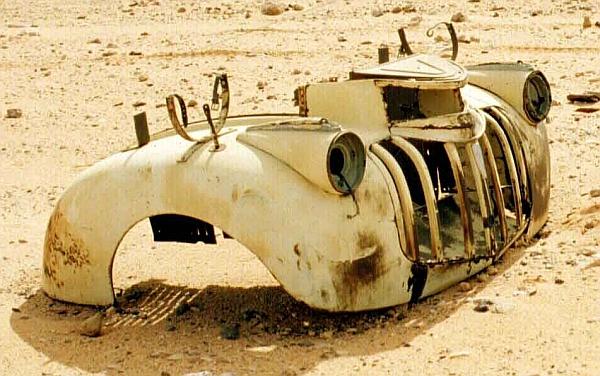 |
| More battle debris from the 31 January 1941 LRDG action in southwest Libya. That appears to be part of a Chevy truck. |
British Government: Churchill continues to obsess over the regular radio broadcasts by socialist J.B. Priestley on the BBC. He sends a memo to Alfred Duff Cooper in which he demands that no payment be made for such "hampering criticism" and calls for equal time to be given to "Conservative opinion." Churchill also sends another memo to Duff Cooper in which he expresses a desire for a "malicious lie" being told about him by isolationist sources - that Churchill supposedly once said that America should have stayed out of World War I - that should be countered by repudiations "as often as possible on the American radio."
According to the diary of Minister of Information Sir John Reith, a fierce critic of Churchill, he has dinner today with Chief of the Imperial General Staff General John Dill. According to Reith, Dill is extremely uncomplimentary toward Churchill, claiming that the Prime Minister is "often unable to appreciate or understand major issues." Churchill, according to Dill, wastes much time by forcing ministers to deal with "silly minutes from the PM" (a claim to some extent supported by the record, though of course one man's "silly minutes" are another man's vital communications of national importance).
Dill, according to Reith, equivocates when asked whether Churchill does more harm or good to the war effort in his present position. Needless to say, both men's careers would be at hazard if Churchill ever found out about such opinions, but the two men obviously feel a kinship in their distaste for Churchill and his methods and safety in their mutual vulnerability to his potential wrath.
Romanian/Hungarian Relations: Details of the transfer of much of northern Romania to Hungary continue to be determined via Arbitrage in Vienna. Today, 191,000 Jewish residents in Transylvania are transferred from Romanian to Hungarian control. By one estimate, 58,000 of them survive the war.
Occupied Luxemburg: The occupying authorities issue an order requiring citizens to change their first and last names to Germanic variations, else the names will be changed for them.
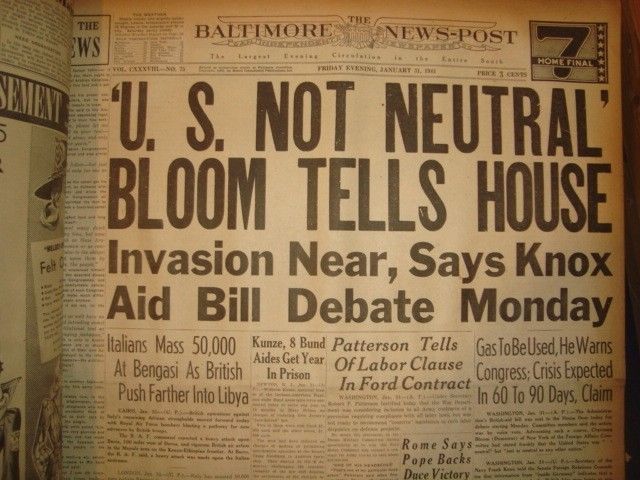 |
| The Baltimore News-Post, 31 January 1941. Congress continues to debate the Lend-Lease Bill. |
Today or around this date, Lemberg manages to make it a punishable offense for any German units to loot diamonds, with any violators prosecuted. The Germans in general, of course, plunder with glee. However, exactly who gets to plunder is a very, very sensitive issue, and sometimes, such as with issues like this, the German government concludes that plundering may be counterproductive to larger goals. Throughout the war, German officers who loot, but aren't supposed to loot, are prosecuted. Others who are allowed to loot do so with impunity and even official assistance. Lemberg has powerful patrons within the Third Reich hierarchy, as Reichsmarschall Hermann Goering has a deep interest in the diamond and art markets centered in Holland and Belgium. So Lemberg can loot even as others are prosecuted for doing the same thing or even much less.
Afghanistan: Subhas Chandra Bose, fleeing from the British in India, arrives in Kabul. His destination is Germany.
Iran: Prime Minister Rashid Ali is succeeded by Taha al-Hashimi.
Indochina: Aboard Japanese cruiser Natori, the Vichy French and Thais sign an agreement ending their border war. The cease-fire is made permanent and - for some reason - is made retroactive to the 28th, when the last Thai bombing operation took place. The Thais get all of the territories that they sought in the Mekong Delta area.
Australia: Prime Minister Robert Menzies continues his epic journey from Australia to London, flying out of Calcutta across India to Karachi.
Antarctica: West Base, home of the famous Snow Cat, officially is closed by the US Antarctic Service.
Holocaust: The German authorities uproot 3,000 Jews from villages and send them to the Warsaw ghetto. They are the first of 70,000 Jews to face this fate within the next two months. The Warsaw ghetto is overcrowded and inadequately provisioned already.
 |
| Martha Gellhorn and Ernest Hemingway en route to China, January 31, 1941. |
American Homefront: Heavyweight Champion Joe Louis retains his title against Red Burman with a fifth-round knockout at Madison Square Garden.
The first picture to star radio stars and comedy team Abbott and Costello, "Buck Privates," is released. This is the beginning of a terrific film career for the two comedians. A big hit for Universal, "Buck Privates" later is remembered for the Andrews Sisters' classic (and much imitated) rendition of "Boogie Woogie Bugle Boy" which some might consider being the first true music video (admittedly, there are many, many contenders for that title). The song, incidentally, is later nominated for an Academy Award for Best Original Song, but in one of the worst decisions in Academy history loses to "The Last Time I Saw Paris." The Japanese, who apparently do not understand American humor very well, will use this film to deride the competence of US soldiers. Shemp Howard of the Three Stooges makes a brief appearance during his "solo career."
Future History: Richard Andrew Gephardt is born in St. Louis, Missouri. As Dick Gephardt, he later becomes the Democratic Party House Majority (and Minority) Leader in the 1990s and a Presidential contender.
Jessica Walter is born in Brooklyn, New York. The daughter of a musician who works for NBC, Jessica early on develops an interest in the theater, which flowers into a distinguished film and television career. Among her many, many career highlights are a starring role in Clint Eastwood's first directorial project, "Play Misty For Me." Jessica Walters continues to act in films and on Television, recently voicing spymistress Malory Archer on FX's "Archer."
Below, some jazz from Alix Combelle in Occupied Paris.
January 1941
January 1, 1941: Muselier ArrestedJanuary 2, 1941: Camp Categories
January 3, 1941: Liberty Ships
January 4, 1941: Aussies Take Bardia
January 5, 1941: Amy Johnson Perishes
January 6, 1941: Four Freedoms
January 7, 1941: Pearl Harbor Plans
January 8, 1941: Billions For Defense
January 9, 1941: Lancasters
January 10, 1941: Malta Convoy Devastation
January 11, 1941: Murzuk Raid
January 12, 1941: Operation Rhubarb
January 13, 1941: Plymouth Blitzed
January 14, 1941: V for Victory
January 15, 1941: Haile Selassie Returns
January 16, 1941: Illustrious Blitz
January 17, 1941: Koh Chang Battle
January 18, 1941: Luftwaffe Pounds Malta
January 19, 1941: East African Campaign Begins
January 20, 1941: Roosevelt 3rd Term
January 21, 1941: Attack on Tobruk
January 22, 1941: Tobruk Falls
January 23, 1941: Pogrom in Bucharest
January 24, 1941: Tank Battle in Libya
January 25, 1941: Panjiayu Tragedy
January 26, 1941: Churchill Working Hard
January 27, 1941: Grew's Warning
January 28, 1941: Ho Chi Minh Returns
January 29, 1941: US Military Parley With Great Britain
January 30, 1941: Derna Taken
January 31, 1941: LRDG Battered
February 1941
February 1, 1941: US Military Reorganization
February 2, 1941: Wehrmacht Supermen
February 3, 1941: World Will Hold Its Breath
February 4, 1941: USO Forms
February 5, 1941: Hitler Thanks Irish Woman
February 6, 1941: Operation Sunflower
February 7, 1941: Fox Killed in the Open
February 8, 1941: Lend Lease Passes House
February 9, 1941: Give Us The Tools
February 10, 1941: Operation Colossus
February 11, 1941: Afrika Korps
February 12, 1941: Rommel in Africa
February 13, 1941: Operation Composition
February 14, 1941: Nomura in Washington
February 15, 1941: Churchill's Warning
February 16, 1941: Operation Adolphus
February 17, 1941: Invade Ireland?
February 18, 1941: Panzerwaffe Upgrade
February 19, 1941: Three Nights Blitz
February 20, 1941: Prien's Farewell
February 21, 1941: Swansea Blitz Ends
February 22, 1941: Amsterdam Pogrom
February 23, 1941: OB-288 Convoy Destruction
February 24, 1941: Okuda Spies
February 25, 1941: Mogadishu Taken
February 26, 1941: OB-290 Convoy Destruction
February 27, 1941: Operation Abstention
February 28, 1941: Ariets Warns Stalin
2020

